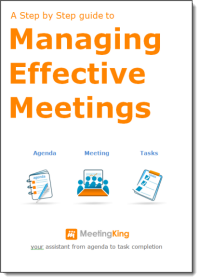Getting Things Done is a methodology that allows businesses and individuals to increase their productivity. The brainchild of management consultant David Allen, the central idea of the theory is that it is not particularly productive to have people remembering the tasks that they have to do. The goal is to write those tasks down so that they are not crowding the mind. Then the individual is freed up to focus on actually achieving the tasks in a productive manner, rather than focusing on trying to remember what needs doing. David Allen wrote a successful book on the Getting Things Done approach, which is also frequently called GTD. Allen’s 2002 book Getting Things Done: The Art of Stress-Free Productivity has achieved widespread acclaim.
 The Getting Things Done method is founded in recording information on tasks that need to be carried out, to avoid mental blocks that can occur. Allen argues that with sufficient planning, problems of mental blocks can be overcome. He advocates a weekly review which examines the different priorities of tasks that have to be carried out, and categorizing tasks together in groups that are similar to one another. This allows individuals to be able to identify tasks that might be more efficiently performed if carried out at the same time. An example might be for a Project Manager, chasing up outstanding actions via the telephone or email. Tasks are prioritized also on the basis of things that need to be done right away, activities that can be delegated, tasks that can be put off until later, or those that realistically do not even need to be done at all.
The Getting Things Done method is founded in recording information on tasks that need to be carried out, to avoid mental blocks that can occur. Allen argues that with sufficient planning, problems of mental blocks can be overcome. He advocates a weekly review which examines the different priorities of tasks that have to be carried out, and categorizing tasks together in groups that are similar to one another. This allows individuals to be able to identify tasks that might be more efficiently performed if carried out at the same time. An example might be for a Project Manager, chasing up outstanding actions via the telephone or email. Tasks are prioritized also on the basis of things that need to be done right away, activities that can be delegated, tasks that can be put off until later, or those that realistically do not even need to be done at all.
The Getting Things Done methodology is not tied to a certain technology, you can do it with pen and paper. Of course, advances in technology have made Getting Things Done much easier than in the past. Software programs can be utilized to help remind employees what must be done. Such programs can provide the framework and structure to ensure a successful workflow process.
MeetingKing is designed to implement Getting Things Done in your organization. In particular, it allows people to store information in a highly structured format linked to meetings that were held on the same subject matter. Tasks are created in MeetingKing and allow team members to receive reminders about outstanding tasks. MeetingKing does not only keep you informed on tasks you have to do, but also on tasks others have to do for you.
MeetingKing’s reminder system is considerably more efficient than employees’ minds, and so the effort of remembering what needs to be done is alleviated, allowing employees to focus on the actual tasks and performing them to a high standard. MeetingKing with its unique follow-up meeting feature will even place the tasks from previous meeting(s) on the agenda of your next meeting and it will continue to do so until a task is completed. By using tags to identify projects or departments you can easily combine tasks related to the same project or department regardless of what meeting they were created in.


